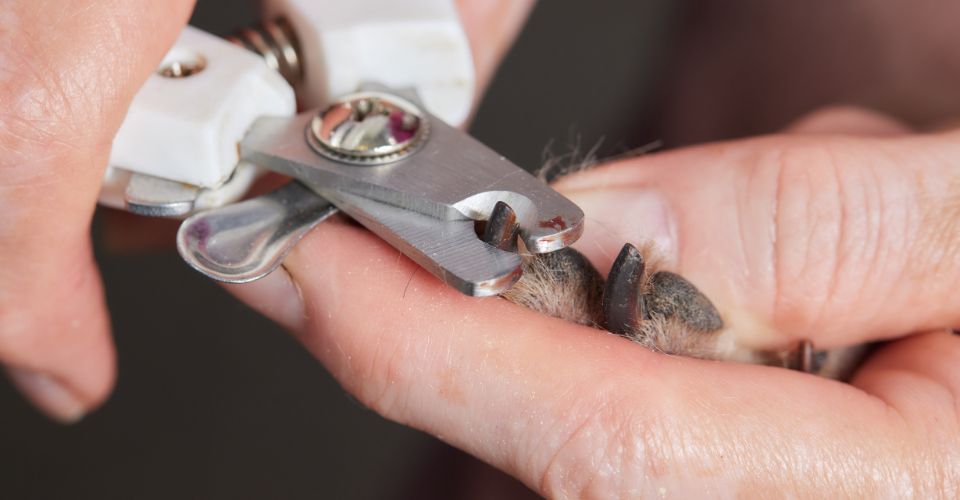Dogs are fond of sniffing and eating whatever comes their way. If you have any edible item present in your home within your dog’s reach, chances are that, sooner or later, he might eat it. Keeping this in mind, if you are a dog owner who is fond of jicamas and you keep this vegetable in your home, it is natural for you to wonder, “can dogs eat jicama?”
If so, what could be the potential risks and benefits of dogs eating jicama? How can I extract the maximum amount of benefits out of this particular vegetable for my dog?
We will explore the answers to these questions in this blog article. Let us find out!
Can Dogs Eat Jicama?
The simple and straightforward answer is yes, dogs can eat jicamas. However, you need to keep yourself aware of some facts before feeding your dog jicama.
Jicama has almost similar pros and cons for any other creature as it has for human beings. Going with this, you should be okay with your dog having some of it. Though the benefits of eating jicama outweigh the disadvantages, you should be well aware of certain things before proceeding with jicama for your dog.
Let us begin!
The History of Jicama
Jicama (pronounced hee-ka-ma), also known as Mexican Potato, yam bean, and singkamas, is a centuries-old vegetable. It is first known to have existed in the region today known as South America, and hence, believed to be the native cultivated product of that particular region. Nevertheless, after the advent of the Spanish explorers, it was gradually transported to and cultivated in other parts of the world as well. Today, most of its cultivation, other than South America, takes place in East and Southeast Asia, particularly China and Philippines.
The Nutritional Content of Jicama
Jicama is loaded with a lot of nutrition content. It has all the desirable vitamins and minerals which can maintain a healthy diet and, in turn, a healthy body.
Per the U.S. Department of Agriculture, a 100g jicama contains the following nutrients.
| Vitamin C | 33% |
| Vitamin B-6 | Very Small |
| Calcium | 3% |
| Iron | 1% |
| Magnesium | 3% |
| Potassium | 4% |
| Dietary Fiber | 19% |
| Protein | 1% |
The Benefits of Jicamas for Dogs
As mentioned above, jicamas contain some essential vitamins, minerals, and other dietary components, which have a plethora of benefits for dogs. Let us examine each one of them to have a complete grasp of the advantages.
The Benefits of the Vitamins in Jicama for Dogs
Vitamins are known for providing better overall health to any living organism. Minus the vitamins for the daily diet and the living beings would slowly start to perish. Therefore, the importance of vitamins cannot be ignored for dogs as well. Thankfully, jicama is a vegetable that provides all the necessary and beneficial vitamins to your dog.
The most useful vitamins present in jicama are vitamin C and vitamin B6.
Vitamin C plays two important roles: it enhances the immune system of dogs and protects their cells from aging too quickly. Without it, or without its proper intake, our dogs might be in danger of getting infected quite easily. Likewise, they might lose their precious cells too early, thus consuming a lot of energy just to produce new cells while that energy was meant to be used for playing and taking part in different activities with their owners.
Similarly, vitamin B6 is essential for the proper functioning of the brain. Dogs are known for their intelligence, which can be at stake if they are not getting the proper amount of Vitamin B6.
Keeping these benefits derived from vitamins in mind, serving your dog jicama is surely a good idea.
The Benefits of the Minerals in Jicama for Dogs
Minerals are essential for the proper development of the bones and teeth of your dog. And here, jicama steps in at the right time!
Jicama contains minerals like calcium and iron. The former is known for providing a healthy set of bones and teeth that are vital for your dog’s physical strength. Likewise, iron helps in the smooth functioning of the respiratory system by providing the capability to transport oxygen in your dog’s body. Moreover, it is also known for the proper functioning of some enzymes.
Read: Can Dogs Eat Avocados?
The Benefits of Other Nutritional Components in Jicama for Dogs
Besides the nutrients mentioned above, some other important nutritional components present in jicama are fibers, antioxidants, carbohydrates, and proteins.
Fibers have many benefits for dogs, especially their role in digestion. It is also an excellent source of relief for your dog if he has diarrhea.
Similarly, antioxidants prevent the spread of free radicals and reduce the damage posed by the oxidation process, thereby minimizing the risk of many diseases. Carbohydrates, on the other hand, are a good source of energy for all the lively and playful activities a dog performs. Protein is present in a very small amount in jicama. It is necessary for the development of muscles in dogs.
Other Health Benefits of Jicama for Dogs
Some other health benefits of jicama for dogs include a healthy gut because of the presence of inulin, weight loss due to fewer calories, cancer risk reduction due to the presence of vitamins, constipation cure due to the higher fiber content, to name a few.
The Downside of Dogs Eating Jicama
Indeed, jicamas have plenty of health benefits for dogs. Nonetheless, there are a few things you need to keep in mind before feeding your dog any jicamas.
Jicamas contain rotenone and an excess of fiber. Let us examine each substance in a bit of detail in order to avoid any mishap that can happen to your dog.
The Side-Effects of Rotenone in Jicama on Dogs
Rotenone is an odorless compound present in the leaves and seeds of jicama, which acts as a pesticide but causes rotenone toxicity once consumed by living beings. If a dog eats jicama containing rotenone, he will be exposed to a life-threatening chemical. Therefore, dog owners should make sure to feed their dogs only the flesh of jicamas and not its leaves and seeds. Luckily, super-market jicamas do not have leaves attached to them, and thus, your dog can safely consume them.
But if you have brought jicamas straight from the field, containing seeds and leaves, make sure that your dog does not eat it. In the event of any reaction caused by the inadvertent consumption by your dog, take him to the vet right away.
The Side-Effects of the Excess Fiber on Dogs
Fiber is definitely a great component for a healthy stomach of your dog; nevertheless, the excess of it can cause some problems and irritations in him. First, the excess of fiber can cause the inability to digest all the nutrients properly. If your dog takes all the nutrients required for maintaining his good health, but if he cannot digest those nutrients, what is the point of taking those nutrients in the first place?
Secondly, too much fiber can cause gas build-up in your dog’s stomach that may cause unnecessary vexation in him. Lastly, abnormalities like constipation may arise.
Table of Benefits and Potential Hazards of Jicamas
| Benefits of Jicamas for Dogs | The Potential Hazards of Jicamas for Dogs |
|---|---|
| Overall Health | Risk of Rotenone Toxicity |
| Good Digestive System | Gastric Trouble |
| Delays Cell Aging | Abnormalities in Nutrients Digestion |
| Brain Health | |
| Good for Gut Health | |
| Reduced Risk of Cancer | |
| Relief from Constipation | |
| Weight Loss | |
| Reduced Blood Sugar Level |
How to Feed Your Dog Jicama?
There are three basic ways to feed your dog jicama: raw serving, boiled serving, and grated serving. Each way has its own advantages and drawbacks.
Raw serving is easy for the owner, but it is not recommended for puppies who have not grown their teeth properly. Thus it will be hard for them to chew.
On the other hand, boiled serving is easy to chew at but slightly time consuming for the dog owner. What is between raw and boiled serving? Grated serving.
The grated material is hard to chew at but not as hard as the raw on one. Moreover, the grating machine has made grating quite easy. Hence, it may equally benefit both the dog and his owner. Besides, the grated jicama can be put on any food that your dog eats.
Read: Can Dogs Eat Apricots?
Some Recommendations for Feeding Your Dog Jicama
Jicama can have a variety of pros and a few cons for dogs; some might choose not to feed their dogs jicamas. However, there are some recommendations that should be followed if you would like to feed your dog jicamas.
- Always wash the vegetable thoroughly. Pesticides and different chemicals used on it may be consumed by your dog unintentionally, thus causing serious health issues.
- Excess of everything is bad. You must make sure that your dog eats the right amount only. The right amount varies from dog to dog, based on the breed, size, activity level, and age.
- Watch out for allergic reactions. Your dog may or may not be allergic to jicama. If he shows any sign of allergy, immediately stop feeding him and consult a veterinarian.
Alternatives to Jicama for Your Dog
If you are still hesitant about feeding your dog jicama, there are some alternatives given below for your dog.
Jerusalem Artichoke
It is a vegetable that looks a lot like ginger. It also contains vitamins, minerals, and other dietary components similar to those in jicamas. It is known for relieving dogs of their digestion issues.
Boiled Potato
Potato—only the boiled one—can also be a great replacement for jicamas. Raw potatoes have solanine which can cause toxicity in dogs. However, boiled potatoes are safe for dogs. They also contain an enormous amount of nutrients that can benefit your dog in different ways.
Daikon Radish (In Moderate Amount)
It is a type of radish similar to jicamas in certain aspects and safe for dogs consumption if consumed in a moderate amount. It contains vitamins, minerals, and a lot of fiber.
Water Chestnut
It is a grass-like plant loaded with various canine-friendly nutrients. However, it is recommended that only the fresh water chestnut is fed to the dogs. Besides, it should be kept in mind that dogs can have a hard time digesting this particular plant.
Conclusion
Can dogs eat jicama? Yes, dogs can eat jicama. Its health benefits outweigh the risk associated with it. The pros and cons surely exist, and this is true for all the foods out there. All we need to do while feeding jicamas to our dog is to be careful about the recommendations and precautions we have suggested.





